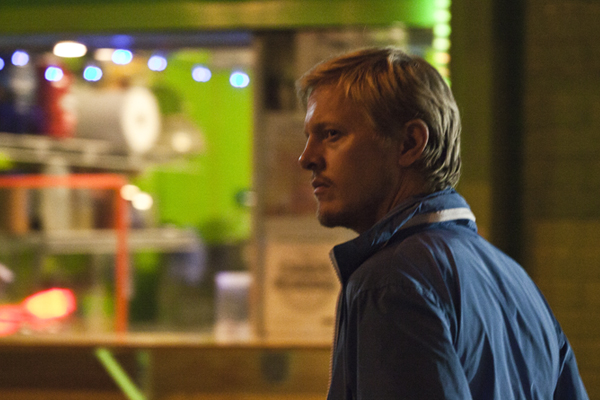PARK CITY, Utah — When we first meet Erik (Danish actor Thure Lindhardt), the New York documentary filmmaker who is the protagonist of Ira Sachs’ film “Keep the Lights On,” he’s got his hand down his pants and is describing himself to a stranger on a phone-sex line. (It’s 1998, so yes, such things still exist.) What he says is pretty accurate — 5-foot-11, blond and handsome, “masculine” — although we never get to confirm the “six-and-a-half inches, uncut” part. “Keep the Lights On” has plenty of explicit gay sex, but no NC-17 material.
That’s quite an introduction to a character, especially considering that Erik is evidently based on Sachs himself, an indie-film stalwart best known for the 2005 Sundance prizewinner “Forty Shades of Blue.” Sachs has made no secret of the fact that “Keep the Lights On,” the story of a long-running and tormented relationship, is drawn from his own life. (His ex-boyfriend is well known in the New York publishing world.) But this isn’t an excuse to issue apologias or vent personal grudges; it’s a loving but entirely fearless portrait of gay urban life at the turn of the millennium, seen through the prism of one dysfunctional love affair. In fact, this movie may test how far the gay community has come on issues of self-representation. While it seems unlikely that bigots and homophobes would actively seek this film out (except, you know, on the sly and stuff), any who do see it could certainly cherry-pick details to support the thesis that Erik’s entire cadre of humanity are degenerates.
As seen over the course of an on-and-off decade together, Erik and his boyfriend Paul (Zachary Booth) — a lawyer who is at first closeted, with a girlfriend — drift in and out of substance abuse, compulsive promiscuity and at least the outer margins of mental illness. Paul has a habit of disappearing for days or weeks on crack benders; on one such occasion, Erik tracks him down in a midtown Manhattan hotel room and holds Paul’s hand while he has sex with a male prostitute. (As I said earlier, there’s no full-frontal nudity in this film, but Sachs is frank about the messy realities of man-on-man sex in a way rarely or never seen on-screen before.)
I should save a full review of Sachs’ magnum opus (and that’s what it is) for a later occasion. But let me assure you that whatever else “Keep the Lights On” may be — scathing self-portrait, old-school NYC independent film (shot on super 16, not HD video!), showcase for two marvelously liberated performances — it’s absolutely not a freak show. Erik and Paul are complicated, confidently realized creations, and there’s plenty of human commonality to be found in their relationship, no matter what gender you are or whom you go to bed with. But Sachs has clearly decided that there’s no point in pretending that gay society and sexuality aren’t distinctive in many ways. (I’m a great admirer of Lisa Cholodenko and “The Kids Are All Right,” for instance, but that’s a movie predicated on the idea that gay marriage is fundamentally not different from the heterosexual variety.)
Like Andrew Haigh’s “Weekend,” another recent film that feels like a step forward or a step away from the “queer cinema” of the ’90s, this isn’t a movie about identity or coming out or facing oppression. It’s an unstinting relationship drama — perhaps consciously modeled on Bergman’s “Scenes From a Marriage” — about two guys who fall in love in the most tolerant and diverse metropolis in America, surrounded by supportive gay and straight friends, and manage to screw it all up with drugs and craziness and horndoggery. You could choose to interpret the movie as being about how people like Paul and Erik are ghettoized by an uncaring, heterocentric society or whatever, but frankly there’s nothing like that in the film. (One way to understand the title, as Sachs explained after the screening I attended here, is as a commitment to revealing everything and hiding nothing.)
Beautifully shot by Thimios Bakatakis, with songs by underground New York musical legend Arthur Russell (who died of AIDS in 1992), “Keep the Lights On” is an instant landmark in gay cinema, and easily the finest dramatic film I saw at Sundance this year. (Possibly that’s damning with faint praise — but it’s still good!) Not only does this film gloriously fulfill the potential that Ira Sachs has tantalized movie-lovers with for years, it also help explains what took him so long. Out of lost love comes a terrific work of art; it’s the oldest story in the world, but it always feels new when it’s done right.

